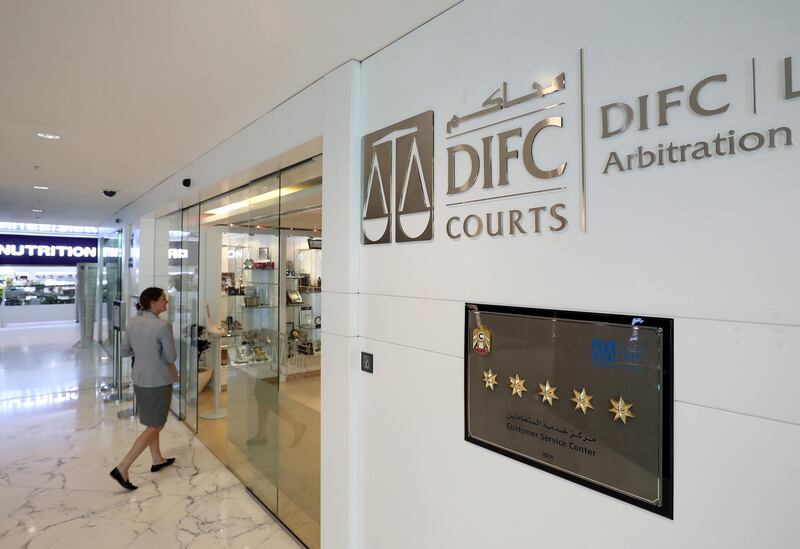Lawyers have welcomed the UAE's approval of a draft law on arbitration, a fast-growing method of settling disputes out of court, saying it would provide increased confidence to investors bringing cases in the Emirates.
“Today’s business world is always evolving and an effective dispute resolution system is paramount to securing investor trust,” said Habib Al Mulla, sole managing partner of law firm Baker McKenzie Habib Al Mulla, and one of the most established Emirati legal practitioners.
"The UAE Federal National Council's approval of the draft Arbitration Bill on Tuesday is a very welcome development and clearly evidences the UAE's intention to remain at the forefront of dispute resolution in the region."
Commercial legal disputes are on the rise in the UAE, according to figures from the DIFC Courts, the international common law system of the emirate’s financial free zone, which reported this month a 41 per cent year-on-year increase in the total number of commercial cases it handled in 2017.
The court handled 520 cases last year across all of its divisions, with claims at the main Court of First Instance, which includes arbitration cases, rising to 54, up 17 per cent year-on-year.
As the price of oil rebounds from a three-year slump and the economy accelerates, companies are looking for cheaper methods of resolving disputes, away from the public eye, and arbitration provides such a solution, its proponents say.
The UAE has been working to establish the country as an international centre for commercial arbitration to rival other such hubs in the United Kingdom, Singapore and Hong Kong.
The number of arbitrations heard in the country is rising. The DIFC Courts' arbitration tribunal saw a 10 per cent year-on-year increase in the number of cases in 2016, while the Dubai International Arbitration Centre, an initiative of the Dubai Chamber, registered a 13 per cent increase to 214 cases in 2016. Figures for last year are not yet available.
Under the draft UAE law, parties can choose the arbitrator who they wish to hear their case according to its subject matter, the legal system they wish to govern their case – whether it be the UAE, UK, Singapore or any other jurisdiction – and where it will be heard. It is also becoming possible to hear arbitrations online.
_______________
Read more:
DIFC Courts cases up 41% in 2017, led by small claims tribunal
DIFC Courts launches new technical and construction disputes court
New ADGM arbitration centre to be launched
______________
The provisions of the law will apply to all arbitrations within the country, provided the parties "agree to not be subject to another arbitration law", and provided the case does not "contradict the UAE's public order and morals", state news agency Wam reported.
The legislation will now return to the UAE's judicial authority for any further revisions, before being passed to the Cabinet of Ministers for approval, then the Supreme Court. It is likely the law will be enacted in the second half of this year, according to Essam Al Tamimi, senior partner at law firm Al Tamimi & Company.
"This is a long-awaited and extremely important law that goes way, way beyond just settling arbitration," Mr Al Tamimi told The National.
"It [boosts] the UAE's international reputation, which is reassuring for investors and strengthens the judicial system by giving people the choice of appointing their own arbitrator, venue and the law that is applicable to their transaction and which would govern their investment. This gives them confidence."
The new law is expected to adopt many of the provisions contained in the United Nations Commission on International Trade Law, which is a model for international commercial arbitration and has been enacted successfully in many countries, said Stuart Paterson, partner at law firm Herbert Smith Freehills.
"The UAE's draft law provides a more comprehensive, modern framework for managing complex cross-border arbitrations than what is currently contained in a small set of provisions in the UAE civil procedure code," said Mr Paterson.
“Arbitration is an increasingly popular choice for businesses because it can offer confidentiality, independence, speed, flexibility and ease of overseas enforcement compared to litigation in a national court.”





